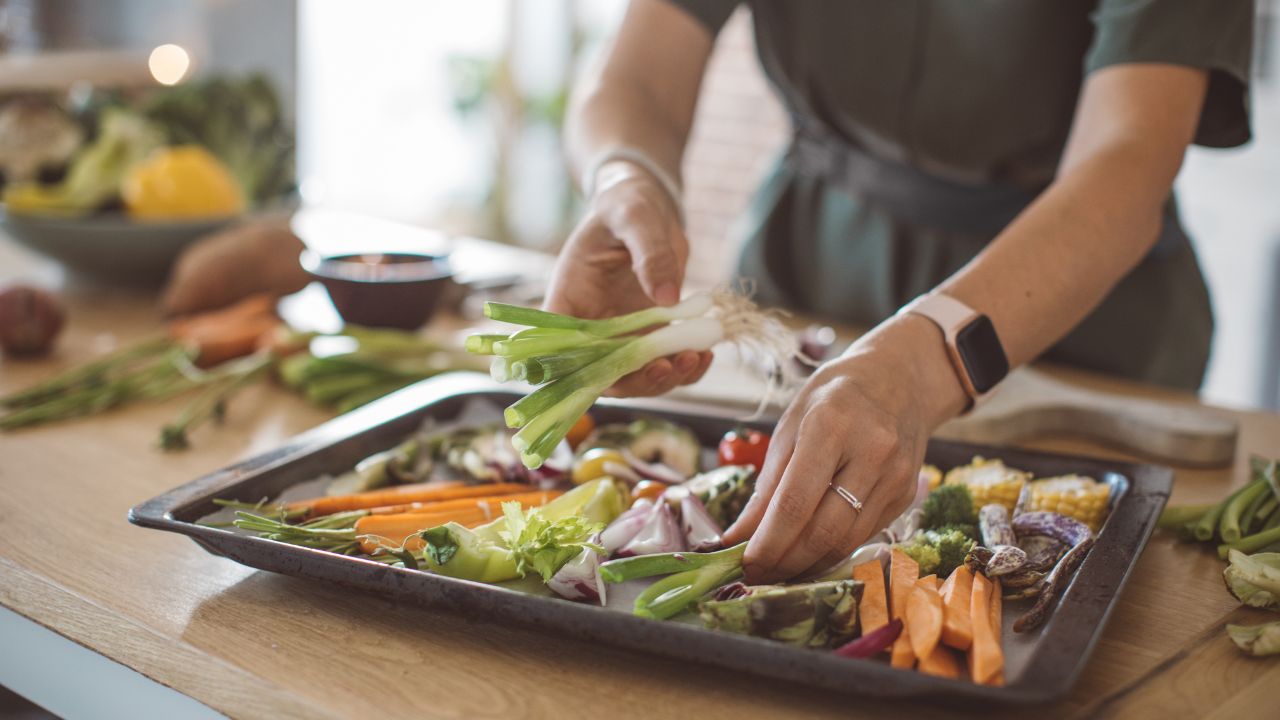One of the biggest challenges in maintaining a healthy lifestyle is eating balanced meals consistently. Many professionals, students, and parents begin the week with the best intentions but often end up reaching for takeaways, processed snacks, or skipping meals altogether when life gets hectic. This is where meal prepping comes in, not as a rigid system, but as a flexible strategy that saves time, money, and stress while ensuring healthier choices.
Meal prepping means planning, cooking, and portioning meals in advance, usually for several days at a time. It reduces the temptation of unhealthy convenience foods and helps maintain balanced nutrition throughout the week. Far from being a trend limited to fitness enthusiasts, it has become a practical solution for anyone looking to simplify their daily routine.
In this guide, we’ll explore the benefits of meal prep, essential tools, step-by-step planning, sample weekly menus, and practical tips to make it both sustainable and enjoyable.
Why Meal Prep Matters
Saves Time
Cooking every day can feel overwhelming, especially with a busy schedule. By dedicating a few hours once or twice a week, you save significant time on daily cooking and cleaning.
Reduces Stress
Knowing your meals are already prepared eliminates the “What should I eat today?” decision fatigue. This mental relief makes sticking to healthy eating easier.
Promotes Balanced Nutrition
When meals are planned, it’s easier to ensure a proper mix of proteins, carbs, fats, and vegetables. This reduces the risk of grabbing processed or fast food.
Saves Money
Prepping meals in bulk reduces food waste and minimises unnecessary spending on takeaways or snacks. Buying ingredients in larger quantities often costs less too.
Supports Health Goals
Whether you want to lose weight, gain muscle, or simply eat more vegetables, meal prep keeps you on track by controlling portions and ingredients.
Essential Tools for Meal Prep
- Storage Containers: Invest in durable, BPA-free containers with tight lids. Glass containers are ideal as they can go from fridge to microwave.
- Meal Prep Bags: Useful for transporting meals to work or school.
- Measuring Cups & Kitchen Scale: Helps with portion control.
- Slow Cooker or Instant Pot: Saves time when cooking large batches.
- Sharp Knives & Cutting Boards: Essential for prepping vegetables efficiently.
- Labels & Markers: For noting preparation dates to keep track of freshness.
Step-by-Step Guide to Meal Prepping
Step 1: Plan Your Menu
Decide on meals for the week before shopping. Aim for variety so you don’t get bored.
Step 2: Make a Shopping List
List ingredients based on recipes and categories (vegetables, proteins, grains, snacks). Sticking to the list reduces impulse buying.
Step 3: Choose a Prep Day
Most people find Sundays and Wednesdays ideal. Block 2–3 hours to cook, portion, and store.
Step 4: Cook in Batches
Prepare grains, proteins, and vegetables in bulk. Cook chicken breasts, roast a tray of vegetables, or boil rice for multiple meals.
Step 5: Portion and Store
Divide meals into single-serving containers. Store 3–4 days’ worth in the fridge and freeze the rest.
Step 6: Reheat and Enjoy
Use microwaves, ovens, or stovetops to reheat meals. Add fresh herbs or condiments before eating to keep flavours vibrant.
Sample Weekly Meal Prep Ideas
Here’s a balanced weekly plan that covers breakfast, lunch, dinner, and snacks.
Breakfast Options
- Overnight Oats: Rolled oats soaked in milk or yoghurt with chia seeds, topped with berries and nuts.
- Vegetable Egg Muffins: Whisked eggs with spinach, tomatoes, and peppers baked in muffin tins.
- Smoothie Packs: Pre-portion fruits like bananas, berries, and spinach into freezer bags—just blend with milk in the morning.
Lunch Options
- Grilled Chicken with Quinoa and Broccoli: A simple high-protein, high-fibre option.
- Chickpea Salad Bowl: Chickpeas, cucumbers, cherry tomatoes, and feta with olive oil dressing.
- Turkey or Tofu Stir-Fry: Cooked with colourful vegetables and served with brown rice.
Dinner Options
- Baked Salmon with Sweet Potatoes and Asparagus
- Vegetable Lentil Curry with Whole-Wheat Rotis
- Lean Beef Chilli with Kidney Beans and Cornbread
Snack Options
- Carrot sticks with hummus
- Greek yoghurt with honey
- Nuts and dried fruit mix
- Apple slices with peanut butter
Tips to Keep Meal Prep Interesting
- Mix flavours: Use spices, herbs, and sauces to keep dishes exciting.
- Change proteins: Rotate between chicken, fish, beans, and tofu.
- Incorporate seasonal produce: Fresh fruits and vegetables add variety and nutrition.
- Keep frozen staples: Frozen peas, spinach, or berries are quick and nutritious add-ins.
- Batch-cook sauces: Tomato sauce, pesto, or yoghurt dressings can transform simple dishes.
Common Mistakes to Avoid
- Prepping too much food: Start small to avoid waste if meals spoil before you eat them.
- Lack of variety: Eating the same meal daily leads to boredom and temptation to order takeout.
- Skipping snacks: Prepping snacks helps avoid unhealthy choices during mid-day hunger.
- Not considering reheating: Some foods lose texture when microwaved; choose reheatable options like grains and roasted vegetables.
Meal Prep for Different Goals
For Weight Loss
- Focus on portion control.
- Include high-fibre foods to stay full longer.
- Avoid creamy sauces and high-calorie snacks.
For Muscle Gain
- Increase protein-rich meals (chicken, eggs, beans, fish).
- Add calorie-dense healthy fats like avocados and nuts.
- Prioritise post-workout meals with carbs and protein.
For General Health
- Aim for colourful plates with vegetables of different types.
- Balance each meal with carbs, protein, and fat.
- Include fermented foods like yoghurt or kimchi for gut health.
Frequently Asked Questions
Q: How long can prepped meals last in the fridge?
Most cooked meals last 3–4 days. Freeze extras if preparing for a full week.
Q: Can I meal prep without a freezer?
Yes, but stick to prepping 3 days at a time to maintain freshness.
Q: Do I need to weigh every ingredient?
Not unless you’re following strict calorie goals. Visual portion control (using your hand as a guide) works well for most people.
Q: Is meal prep expensive?
No, bulk buying and cooking actually reduce costs compared to daily takeaways.
Meal prepping is not about strict diets or rigid schedules; it’s about creating a system that makes healthy eating easier and more consistent. By planning ahead, cooking in batches, and portioning meals, you remove the daily struggle of deciding what to eat.
Whether your goal is weight management, better nutrition, or simply saving time, meal prepping adapts to your lifestyle. It is flexible, sustainable, and surprisingly enjoyable once you find your rhythm. Instead of viewing food as a last-minute decision, meal prep turns it into an intentional, empowering act of self-care.
Start small, prep just lunches for three days. As you build confidence, expand to breakfasts, snacks, and dinners. Over time, this simple habit can transform your health, energy, and productivity throughout the week.








Leave a Comment